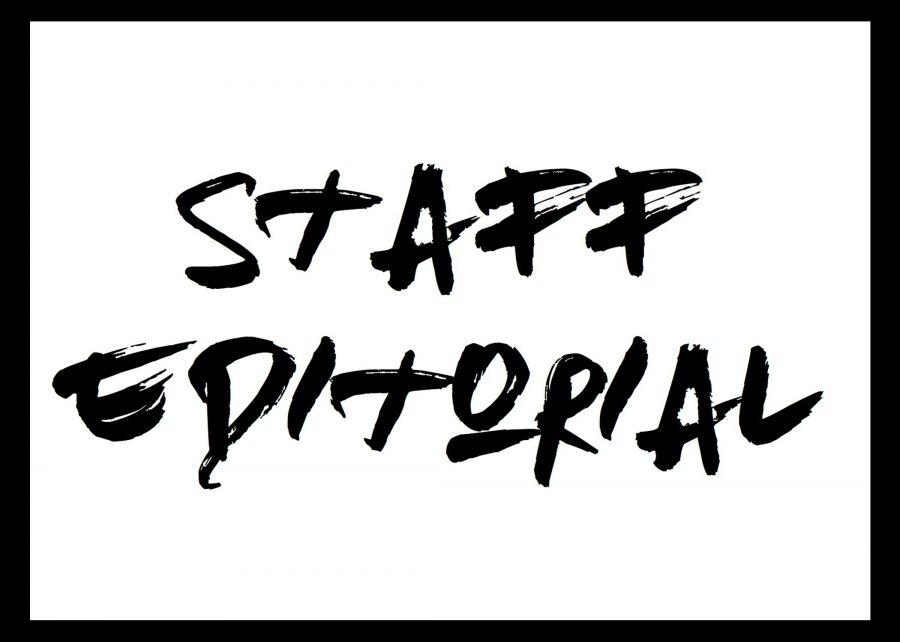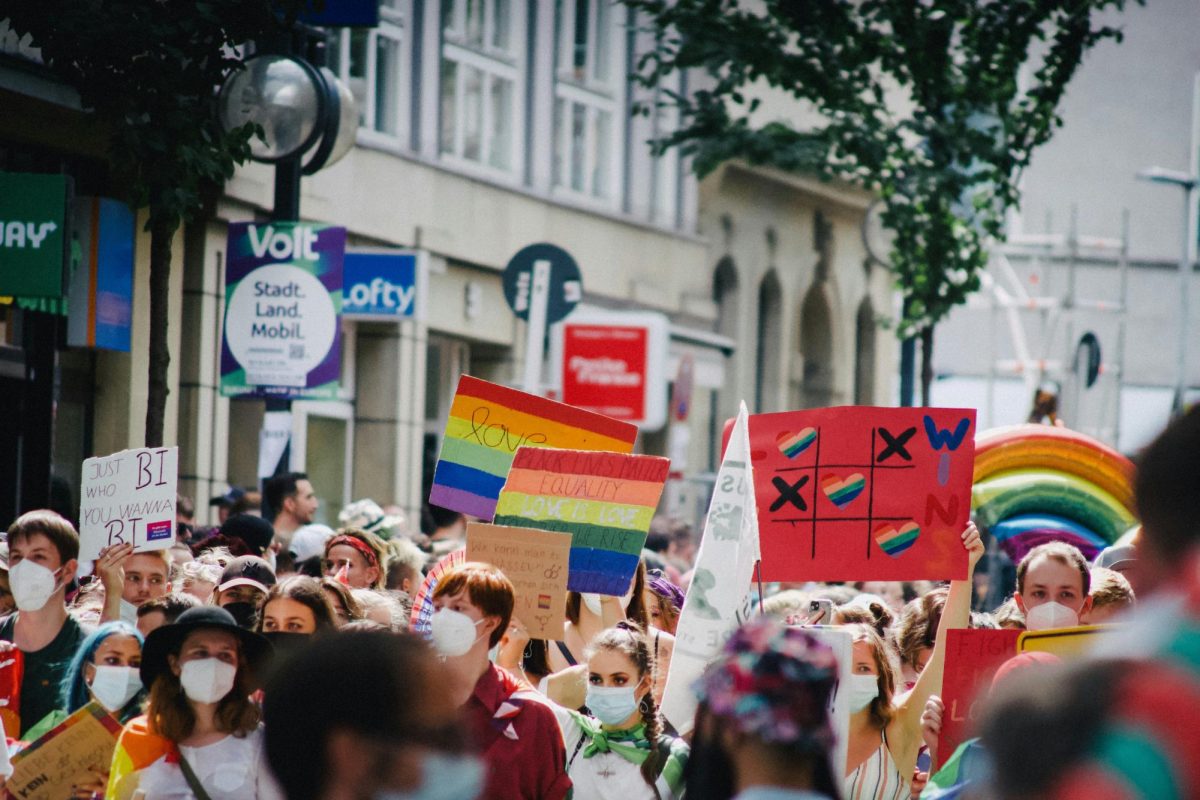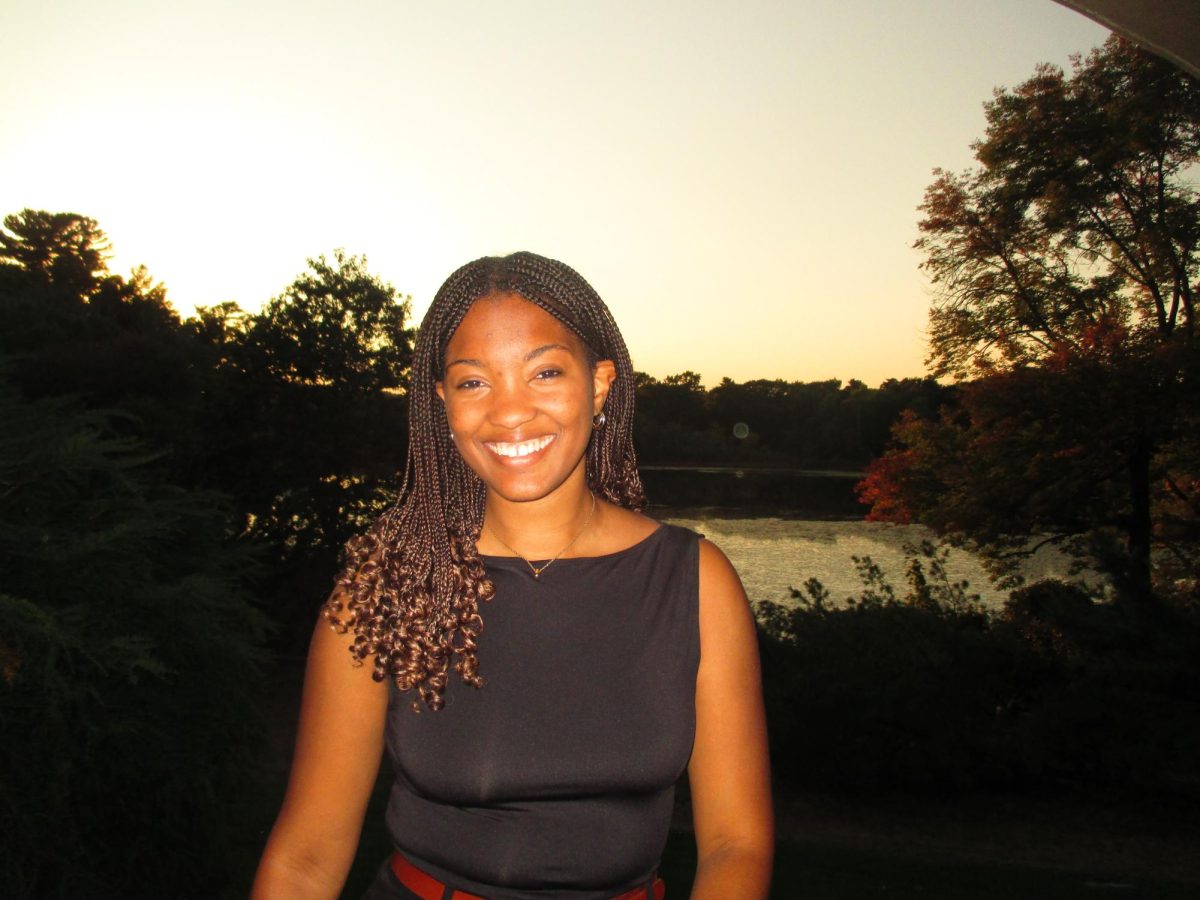Many members of our community, including students, alumnae and faculty, have criticized the Wellesley community for becoming an environment where free speech is not allowed or is a violated right. Many outside sources have painted us as a bunch of hot house flowers who cannot exist in the real world. However, we fundamentally disagree with that characterization, and we disagree with the idea that free speech is infringed upon at Wellesley. Rather, our Wellesley community will not stand for hate speech, and will call it out when possible.
Wellesley students are generally correct in their attempts to differentiate what is viable discourse from what is just hate speech. Wellesley is certainly not a place for racism, sexism, homophobia, Islamophobia, transphobia or any other type of discriminatory speech. Shutting down rhetoric that undermines the existence and rights of others is not a violation of free speech; it is hate speech. The founding fathers put free speech in the Constitution as a way to protect the disenfranchised and to protect individual citizens from the power of the government. The spirit of free speech is to protect the suppressed, not to protect a free-for-all where anything is acceptable, no matter how hateful and damaging.
This being said, the tone surrounding the current discourse is becoming increasingly hostile. Wellesley College is an institution whose aim is to educate. Students who come to Wellesley hail from a variety of diverse backgrounds. With this diversity comes previously-held biases that are in part the products of home environments. Wellesley forces us to both recognize and grow from these beliefs, as is the mark of a good college education. However, as students, it is important to recognize that this process does not occur without bumps along the way. It is inevitable that there will be moments in this growth process where mistakes will happen and controversial statements will be said. However, we argue that these questionable claims should be mitigated by education as opposed to personal attacks.
We have all said problematic claims, the origins of which were ingrained in us by our discriminatory and biased society. Luckily, most of us have been taught by our peers and mentors at Wellesley in a productive way. It is vital that we encourage people to correct and learn from their mistakes rather than berate them for a lack of education they could not control. While it is expected that these lessons will be difficult and often personal, holding difficult conversations for the sake of educating is very different from shaming on the basis of ignorance.
This being said, if people are given the resources to learn and either continue to speak hate speech or refuse to adapt their beliefs, then hostility may be warranted. If people continue to support racist politicians or pay for speakers that prop up speech that will lead to the harm of others, then it is critical to take the appropriate measures to hold them accountable for their actions. It is important to note that our preference for education over beration regards students who may have not been given the chance to learn. Rather, we are not referring to those who have already had the incentive to learn and should have taken the opportunities to do so. Paid professional lecturers and politicians are among those who should know better.
We at The Wellesley News, are not interested in any type of tone policing. The emotional labor required to educate people is immense and is additional weight that is put on those who are already forced to defend their human rights. There is no denying that problematic opinions need to be addressed in order to stop Wellesley from becoming a place where hate speech and casual discrimination is okay. However, as a community we need to make an effort to have this dialogue in a constructive and educational way in order to build our community up. Talk-back, protest videos and personal correspondences are also ways to have a constructive dialogue. Let us first bridge the gap between students in our community before we resort to personal attacks. Our student body is not only smart, it is also kind. Let us demonstrate that through productive dialogue.





Santiago | Aug 29, 2018 at 6:52 pm
First of all I should point out that I am not a native English speaker, so I apologize in advance for any errors or repetitions in my use of language, and my more than likely incorrect formatting, punctuation and use of quotations.
When you say “those who have already had the incentive to learn and should have taken the opportunities to do so”, it makes me wonder a few things.
If someone disagrees with some prevailing viewpoint in Wellesley College, not because of a lack of information but purely because of a difference of opinion, then what happens? Should those people expect other students or members of the faculty to “take the appropriate measures to hold them accountable for their actions”? And what would those measures be exactly? And as a separate but related question, shouldn’t actions and speech be considered as at least somewhat different concepts?
If a person or a group of people have opinions or beliefs that are different from those held by the majority of students or teachers at Wellesley, and after hearing opposing arguments they don’t change their minds, are they to face hostility? Even if the reason they don’t change their minds is that they don’t find those opposing arguments to be convincing or accurate? Are they to “adapt their beliefs”? What would that mean in that case?
When you say that in those situations “hostility may be warranted”, what would that hostility entail?
You mention that at Wellesley it is to be expected that “controversial statements will be said”, you add that they “should be mitigated by education”. This makes me wonder: what should happen, in your opinion, when someone’s controversial opinions are not changed during their education? And what if those controversial ideas originate precisely from the education the person is receiving, as a result of their thinking process?
It seems to me that not all impopular or uncommon opinions emanate from “previously-held biases that are in part the products of home environments” and are not necessarily “ingrained in us by our discriminatory and biased society”. Sometimes contentious ideas can be the result of careful thinking and can even be correct.
Many concepts that are considered almost incontrovertible in colleges today were once controversial, even among the best educated. Semmelweis’s antiseptic hand washing, the laws of Mendelian inheritance, Darwin’s theory of evolution, Heliocentrism, Wegener’s continental drift theory, etc.
Of course I realize these examples are not quite the type of controversies that your editorial is referring to. They relate to science instead of racism or intolerance. I picked them because they’re are well-known and also precisely because they’re not sensitive or touchy subjects. However the same logic applies: some ideas and beliefs might create controversy in academia and places of higher education and still be correct.
I can comprehend why you would try to prevent racist remarks and speech that directly incites violence, prejudice or intimidation against a group or individual. But there is also the possibility that someone has a controversial opinion or belief that seems to relate to these attitudes and yet does not. If you assume that controversial ideas are automatically wrong and the prevailing thought in Wellesley is automatically right you are in fact diluting the possibility of making that distinction.
You say that “Wellesley forces us to both recognize and grow from these beliefs, as is the mark of a good college education.” I think one of the definite marks of a good college education is being open to ideas that are different from our own and the ability to debate, and a crucial part of debating is being willing to consider the possibility that our ideas and our beliefs are the ones that are wrong. That last part is the one that you appear to either ignore or have forgotten.
Despite all my questions and comments, it is my understanding that the general message of your editorial is precisely in favor of free speech, and I agree with you when you say that “questionable claims should be mitigated by education as opposed to personal attacks” and that “educating is very different from shaming”. What I intended to address is the seemingly dogmatic undertone in it, which appears to assume that all ideas that are taught and all beliefs that are held in a college are absolutely beyond dispute.
As a last and completely unrelated detail, I don’t know if my English level is too low or if the sentence is incorrect, but when you say: “Shutting down rhetoric that undermines the existence and rights of others is not a violation of free speech; it is hate speech.” it seems as though you are saying that the actions described in the first part of the sentence constitute hate speech.
So it basically reads like this: “Shutting down hate speech is hate speech.” My guess is that you were trying to say something like: “Shutting down rhetoric that undermines the existence and rights of others is not a violation of free speech; it is preventing hate speech.” or “it is shutting down hate speech”. As I said maybe your sentence is correct and my grip of the English language is failing me on this one.
I have no idea how the etiquette of ending an online comment goes so I’ll just send my regards,
Santiago.
harry kane | Jul 16, 2018 at 5:02 am
thanks
Mike Moran | Apr 23, 2017 at 7:45 pm
If the writing skills displayed in this piece are any indication of the education received at Wellesley, demand a refund.
L Brown | Apr 23, 2017 at 11:36 am
What the author fails to understand is that so called “hate speech” is still protected under the first amendment unless it can be considered libelous or purposefully attempts to incite violence toward someone. Call it what you like, but “Shutting down rhetoric that undermines the existence and rights of others…” is a violation of free speech.
Terri Patillo | Apr 22, 2017 at 12:12 pm
Oh, Wellesley, how the once mighty have fallen into liberal group-think darkness. Please, I beg of you, have your students re-read 1984 and thoroughly explain it to them. Methinks they missed the point the first time.
Moe | Apr 22, 2017 at 10:18 am
Please accomplish something in life before you tell me what’s proper for my life.